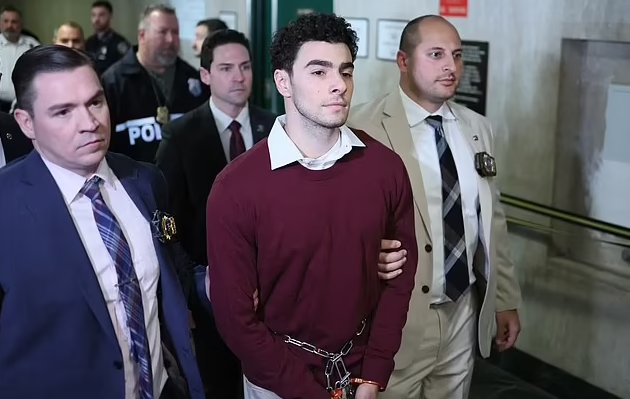
Bill Maher Critiques Luigi Mangione, Gen Z, and the State of Healthcare in America
Bill Maher, known for his biting commentary, had some strong words regarding the recent events surrounding Luigi Mangione and his controversial actions. In December, the public’s reaction to Mangione’s killing of Brian Thompson, a CEO at UnitedHealthcare, sparked a mix of shock and admiration, particularly among some left-leaning Gen Z activists who surprisingly hailed the act as heroic. While Maher took aim at these individuals, he also used the opportunity to dive deeper into the larger issues plaguing the U.S. healthcare system and the younger generation’s approach to justict
He continued by pointing out why people might have more disdain for insurance companies than hospitals. According to Maher, hospitals get a pass in part because of the glorification of healthcare professionals in pop culture. Shows like Grey’s Anatomy portray doctors as heroes, but insurance companies receive no such treatment. Maher even poked fun at “tech bros” responsible for creating dysfunctional hospital websites and the food industry, which he argued contributes to poor health and higher medical costs.
Turning his attention to Generation Z, Maher expressed frustration over the fact that 41% of this demographic had expressed approval of Mangione’s actions in a poll. He didn’t mince words, declaring, “They’re f***ing stupid.” He linked this mindset to Hollywood’s obsession with portraying vigilante justice, claiming that many young people simply lack the maturity to understand the complexities of such issues. For Maher, Mangione’s actions and the subsequent praise for him reflected a generational laziness—an unwillingness to truly engage with the complexities of social justice.
As he mocked Mangione’s newfound “hero” status, Maher sarcastically wished him luck in prison, quipping that “being handsome always makes you popular.” He further dismissed the notion that Mangione was some sort of Robin Hood figure, saying, “You’re not a hero. You’re a typical member of your generation, too lazy to do the work to really understand the issue but happy to pose as a social justice warrior for it.”
Maher also took aim at the cultural phenomenon of “eat the rich,” pointing out that many young people romanticize the idea of dismantling the wealthiest members of society without fully understanding the intricacies of wealth and inequality. He compared the mindset of those celebrating Mangione’s actions to the misplaced sympathy that often accompanies natural disasters, such as when wealthy Los Angeles residents lose their homes in wildfires.
Maher wrapped up his remarks by turning the conversation back to the topic of the U.S. healthcare system. With his usual wit, he suggested that many young people who claim to despise the wealthy don’t actually have a problem with wealth—they just envy the wealthy. “Kids, I’ve seen your media consumption, and I’ve seen your social media posts. You don’t hate the rich, you hate that you ain’t the rich,” he stated, hitting a nerve with the ongoing debate around economic inequality.
While Maher’s remarks about Mangione’s actions were biting and satirical, they also served as a critique of a broader societal trend. He pointed to the lack of deep understanding among some Gen Zers regarding the real problems facing America, using the Mangione case as a jumping-off point to discuss the cultural and systemic issues that contribute to the nation’s challenges. Ultimately, Maher’s commentary underscored a tension between quick-fix solutions and the need for a more thoughtful, informed approach to solving America’s problems.
As for Mangione, the legal process continues. The accused killer of UnitedHealthcare’s Brian Thompson faces multiple charges, including murder and firearms offenses. Whether he will face the death penalty remains uncertain, as the case proceeds through the courts. The outcome of Mangione’s trial could further fuel the ongoing debates around justice, healthcare, and the role of social media in shaping public opinion.